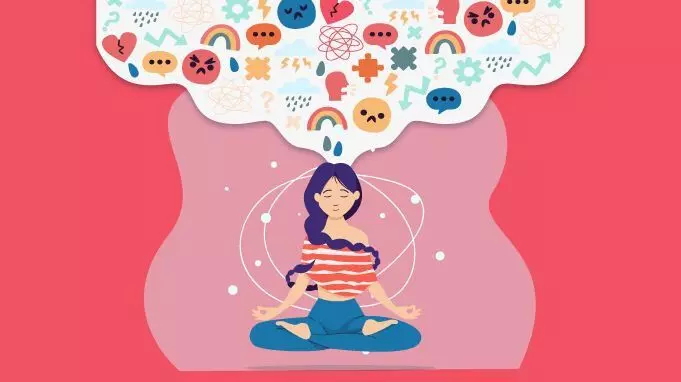Mental health: Practice love and compassion to boost mind’s well-being
Studies have demonstrated that regular engagement in activities such as meditation, kindness towards animals can lead to changes in the brain enhancing our capacity for love, empathy and compassion.
By Sulogna Mehta
Representational Image.
Hyderabad: Who doesn’t want to feel positive and regulate the functioning of the brain and mind to boost mental health? It is possible to cultivate and channelise the positive feelings of love and compassion for psychological benefits, state medical experts.
Love and compassion can be cultivated through practices such as meditation, mindfulness and acts of kindness towards fellow human beings and animals. Studies have demonstrated that regular engagement in these activities can lead to changes in the brain enhancing our capacity for love, empathy and compassion.
So, whether it is practising kindness to oneself or showing empathy to others, these activities have the power to indirectly reshape our brains and create a more compassionate and loving world.
What do scientific studies say?
According to a study published in the International Medical Journal of Experimental and Clinical Research, by researchers and professors Dr Tobias Esch and Geroge B Stefano, love and compassion exert pleasant feelings and rewarding effects. Besides their emotional role and capacity to govern behaviour, appetitive motivation (the motivation or drive to obtain rewards), and a general ‘positive state,’ even ‘spiritual’ at times, the behaviours shown in love and compassion clearly rely on neurobiological mechanisms (related to brain circuits and wiring) and underlying molecular principles.
These processes and pathways involve the brain’s limbic (brain system that regulates emotion and memory) motivation and reward circuits. This capacity to self-regulate emotions, approach behaviours and pair bonding (finding partners, not necessarily romantic), as well as social contracts in love, attachment and compassion, can be highly effective in stress reduction, survival and overall health.
Additionally, studies using functional magnetic resonance imaging (FMRI) have revealed that compassionate individuals exhibit stronger neural connections in the areas of the brain responsible for empathy, suggesting that compassion can be learnt and cultivated.
How can love and compassion can change the brain?
Dr Charan Teja Koganti, a neuropsychiatrist at KIMS Hospital and associate professor at VRK Medical College says, “Love and compassion alter the functional circuits of the brain. Love, empathy and compassion affect our central nervous system especially areas pertaining to the limbic system, hypothalamic-pituitary-adrenal (HPA) axis, and prefrontal cortex, which in turn helps in stress reduction and provides relief from suffering. Here hormones such as vasopressin, oxytocin, cortisol and other chemicals like nitric oxide, dopamine, and endogenous opioids play a role as well in positively affecting the psychology.”
Explaining the brain’s connection with love and compassion, Dr PV Ramana, director and neurosurgeon, Institute of Neurosciences, Pinnacle Hospital says, “Love is often associated with warm feelings of joy and a deep emotional connection with another person. Neuroscientists have discovered that love activates a complex network of brain regions such as the ventral tegmental area, medial insula, anterior cingulate cortex, hippocampus, nucleus accumbens, caudate nucleus and hypothalamus. There is release in the surge of neurochemicals such as dopamine and oxytocin, commonly called the love hormones, creating a sense of pleasure and attachment.”
“Compassion, often described as a deep concern for the well-being of others, is another emotion that can shape our brain. The prefrontal cortex of the brain, involved in decision-making and social cognition, shows increased activity when we experience compassion,” said the neurosurgeon.
Love and compassion can lower stress, depression and boost immunity
“Beyond their impact on the brain, love and compassion have far-reaching benefits for our overall well-being. Several studies have shown that individuals experiencing love and compassion will feel reduced stress as the levels of stress hormones like cortisol are lowered leading to a more relaxed state of the brain. It also boosts the immune function and enhances mental health as it is linked to lower rates of depression and anxiety as well as increased happiness and life satisfaction,” adds Dr Ramana.